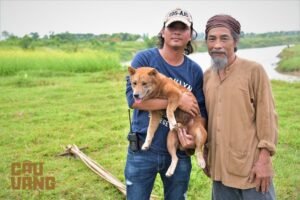
Another Southeast Asian country has a case of super mutant Omicron infection 0
(Dan Tri) – Malaysia became the next country in Southeast Asia to record a case of infection with the Omicron variant, after Singapore reported a similar case.
Passengers at Kuala Lumpur airport, Malaysia on November 29 (Photo: AFP).
Malaysian Minister of Health Khairy Jamaluddin said on December 3 that the country had discovered the first case of infection with the Omicron variant.
Previously, this female student had returned from South Africa, transiting in Singapore.
The female student was quarantined for 10 days, then the quarantine period ended on November 29.
Malaysian authorities re-tested previous positive cases after the World Health Organization (WHO) announced that Omicron was a variant of concern on November 24.
Five people who shared a vehicle with the female student before the quarantine period all tested negative.
`It is important to note that this case entered Malaysia on November 19 before South Africa reported the first (Omicron) case to WHO. After learning about Omicron, we tested again
This week, Malaysia temporarily banned entry to passengers from eight southern African countries – where the new virus strain is spreading.
Minister Khairy said Malaysia will immediately apply restrictive measures, including additional testing for vaccinated passengers from Singapore – who are allowed to enter Malaysia without quarantine.
More and more Asian countries are reporting cases of infection with the Omicron variant.
Previously, Australia, Japan, South Korea, and India have recorded cases of infection with the Omicron variant.
Sri Lanka’s Ministry of Health today announced that the country has discovered the first patient infected with Omicron.
Omicron was first discovered in South Africa last month and is classified by the WHO as a `worrying` variant.
WHO said Asia-Pacific countries should strengthen medical capacity and fully vaccinate people to prepare for the new wave of Covid-19 caused by the Omicron strain.
`Border controls may take time, but every country needs to prepare for new waves of infection. People should not rely solely on border controls. It is important to prepare for
Mr. Kasai said that countries should learn lessons from responding to the Delta variant, fully vaccinating vulnerable groups and implementing preventive measures such as wearing masks or social distancing.




